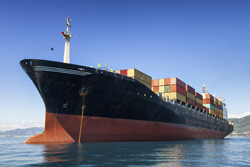Cleaner ships mean faster transport
Ships and cargo vessels are crucial for the economy; however, they require huge cleaning and maintenance costs to keep them in top shape. Fouling — the accumulation of unwanted material on ship exteriors — is a major problem for ships as it decreases their speed and leads to higher fuel consumption. While the quest for effective antifouling marine coatings continues, testing of new coatings is very expensive, limiting research to large companies and excluding innovative small and medium-sized enterprises (SMEs). The EU-funded project IATS(opens in new window) sought to overcome this challenge. It worked on developing a test system to perform tests in laboratories rather than at sea, yielding much quicker results and with less cost. In more detail, the project team developed a testing system that could be at least five times quicker than current methods. It uses an image analyser to detect fouling before it's visible to the naked eye, requiring much less human intervention and supervision. In addition, the system collects and stores data continuously, which can then be viewed online by all users on a network, contributing to its efficiency. To achieve its aims, the project investigated the mechanisms behind fouling and corrosion. It looked at the relationship between freshwater and seawater species that affect fouling, as well as their correlation to fouling. This also involved closely studying molecular fouling or conditioning film, as well as microfouling caused by bacteria, microalgae and fungi, and lastly macrofouling caused by macroalgae and invertebrates. SMEs in the marine and protective coatings market will surely benefit from this new testing approach, enabling businesses to develop new technologies more rapidly. In addition to supporting the shipbuilding sector, this could benefit wind turbine installations, maritime-related infrastructure, offshore structures, power production, oil and gas production, and chemical processing. Ultimately, this innovative testing method could well help advance all these sectors in profound ways, making them more efficient and cost effective.







